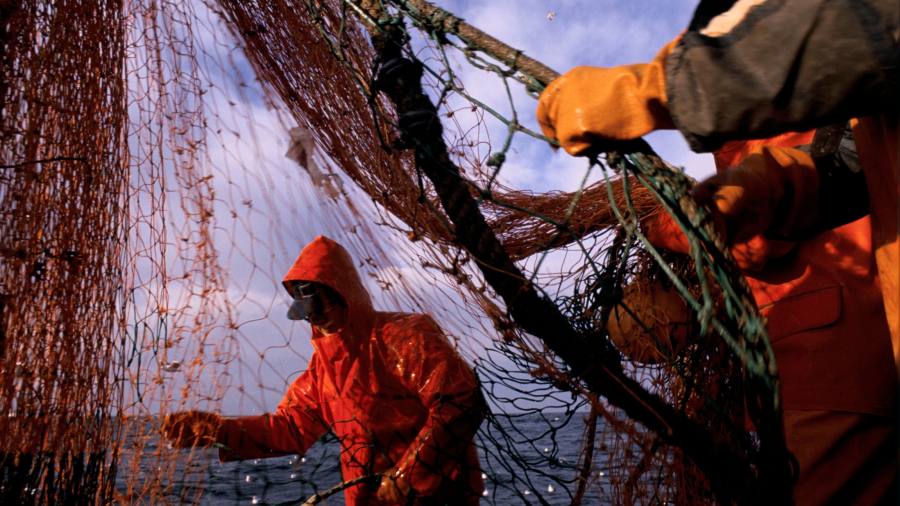
Receive free Fishing industry updates
We’ll send you a myFT Daily Digest email rounding up the latest Fishing industry news every morning.
Britain’s leading supermarkets have launched an investigation into claims of bad practice by a key UK fishing group after the Financial Times exposed the mistreatment of migrant crew on several of its member boats.
The probe into the conduct of the Anglo-North Irish Fish Producers Organisation (Anifpo) and local boat owners will examine concerns over the employment of overseas workers, according to the Seafood Ethics Action (Sea) Alliance, the business group overseeing the investigation.
The investigation, which is due to begin next week, will also look at the need for “wider human rights reform” within the sector.
Anifpo is one of the UK’s most prominent fishing industry groups. Alongside managing catch quotas and seafood sales, the organisation provides its members with administrative support for employing overseas crew.
Many overseas crew are employed through what is widely viewed as an immigration “loophole”, whereby if boats fish in international waters they are not considered to be in UK work despite operating out of UK ports on UK-registered vessels.
As part of an FT investigation into the so-called “transit visa” scheme last month, Filipino crew working on some Anifpo member boats said they had been subject to various forms of mistreatment, including forced labour and restricted access to medical care.
Seven supermarkets and seafood business members of the Sea Alliance are funding the probe into their Northern Irish supply chains. The alliance, which includes Tesco, Asda, Morrisons and Whitby Seafoods, represents 95 per cent of the UK seafood market.
“We’ve been working to ensure it’s a robust independent investigation,” said Andy Hickman, head of the Sea Alliance, which was set up with a mandate to improve human rights in the sector. “The issues faced by the workers . . . aren’t unique to Northern Ireland.
“Alongside this investigation it’s critical that we work with the fishing industry on a wider programme of reform that addresses the root causes which contributed to the allegations.”
The government currently faces a legal challenge over the visa system that underpins this form of employment, which human rights organisations argue is in breach of the state’s obligation to prevent trafficking and modern slavery.
Industry experts estimate that migrant fishers, typically from the Philippines, Ghana, Sri Lanka and India, account for more than half of all deckhands in the UK fleet.
These workers live on the boats all-year round and many are typically paid about £1,000 per month.
Stuart Rivers, chief executive of the Merchant Navy Welfare Board, an umbrella organisation of 45 maritime charities, welcomed the investigation.
“For those employed in the UK fishing industry to be treated this way is just atrocious and needs to be stamped out,” he said. “Change is urgent and vital.”
The British Retail Consortium said: “Retailers and seafood businesses are collaborating through the Seafood Ethics Action Alliance to respond to these serious allegations . . . We are working to ensure that a robust independent investigation into the allegations is completed as a matter of urgency.”
The Sea Alliance said it would “support the sector to implement any improvement actions required”.
Brian Chambers, chair at Anifpo, said the organisation is “proactively” co-operating with the probe.
“Everything is there for anyone that wants to come and investigate it. Our door is open. We have been at the forefront of doing what’s best for migrant crew and that’s always the stance we’ve taken.”